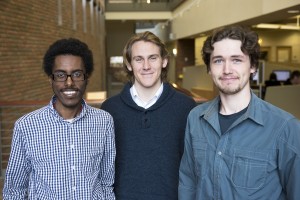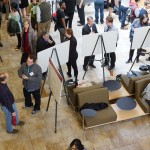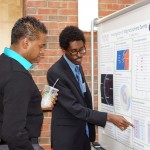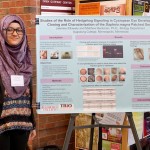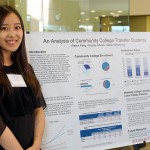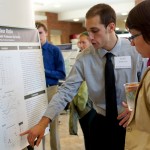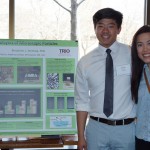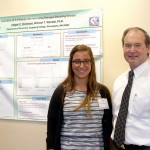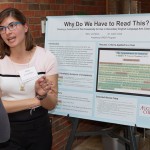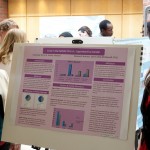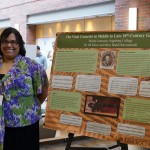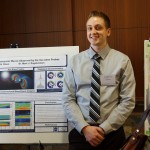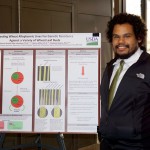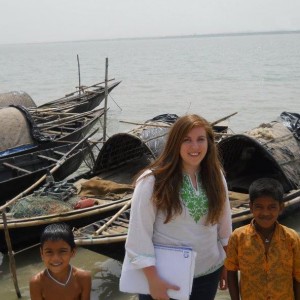 Katie Edelen graduated from Augsburg in 2011 with a triple major in environmental studies, biology, and chemistry. She won a Fulbright to do research at the Oslo Peace Research Institute. Since then she has also won a Rotary Ambassadorial Scholarship to earn her masters in water science at University of Oxford (England) and, been named a Herbert Scoville Jr. Peace Fellow, and is currently working as Legislative Associate for the Friends Committee on National Legislation in Washington D.C..
Katie Edelen graduated from Augsburg in 2011 with a triple major in environmental studies, biology, and chemistry. She won a Fulbright to do research at the Oslo Peace Research Institute. Since then she has also won a Rotary Ambassadorial Scholarship to earn her masters in water science at University of Oxford (England) and, been named a Herbert Scoville Jr. Peace Fellow, and is currently working as Legislative Associate for the Friends Committee on National Legislation in Washington D.C..
How did you decide to apply for a Fulbright? What interested you about the program?
Get paid to go abroad, explore, meet amazing people from all around the world, do research. Um, yes, yes, yes, and yes!
But in all seriousness, I was looking for a unique opportunity that would let me address the chasm between science and policy in the global community. Fulbright not only offered the opportunity to fund my research at a top-tier research institute that boasted international scholars that focused on environmental factors of conflict, but also the opportunity to explore the world, engage in the local community work, and expose me to new ideas and perspectives.
I got all of this! I made amazing, life-long friends in Norway that were both from Norwegian and from around the globe. In fact, a German friend that I met in Norway has been staying with me in DC during her Ph.D. exchange.
While in Norway I traveled extensively in the country and across Europe and was able to travel to Bangladesh to do field research as a result of an additional Fulbright grant.
What are some of the most meaningful lessons you learned from your year as a Fulbrighter (or the application process)?
1. Patience
When you’re abroad not everything works the way you expect and when you are in a country that seems at least on the superficial level very similar to the US, this reality can sometimes be even more challenging as you don’t anticipate it.
2. Go with the flow/Being able to adapt
This kind of relates to the first, but it so important I repeated it. Whether it’s cultural or related to your Fulbright, patience and a go with the flow attitude helps. Coming into the experience, I had certain expectations, despite not all of those expectations being met, others were met if not hugely exceeded. Be willing and open to adapting will not only bring you experiences and lessons learned that you would never expect, it is a lifelong skill that few people have, but is so crucial for many jobs.
3. You only get as good as you give
You will only get out of the experience what you put into it. If you push yourself to put yourself out there you will be surprised about the outcomes and the amazing experiences you will have. This, of course, is hard even when you are in familiar circumstances and that much more daunting when in an unfamiliar environment, but trust me it is so worth it.
Some of the Fulbrights during my year had a difficult time with the cultural differences and really retreated into their work or their friends that shared cultural similarities. We had very different experiences and they really didn’t enjoy their experience.
How did you change or grow from the experience?
I really found myself in unexpected ways. Fulbright set me on a path that I could not imagine otherwise. With every new amazing opportunity I experience, I still think about where I came from, this young girl from Wisconsin that otherwise would not have such an opportunity. I want others to know that this is possible for them too. It opened my world to a whole new and other set of possibilities and challenged me to work across areas and disciplines that are so often siloed and made me think about things more holistically, and while this is still challenging in my professional career in a world made up of silos, I could never imagine not pushing those boundaries. I met people that awakened me to areas of myself, my interests, and my life path that I would have otherwise not known were even there or possible. I cannot emphasize more how life changing this experience was, beyond this it provided me with a network of people that make me feel like I am home every time I get to see or talk to them. It gave me a sense of purpose and belonging in my journey.
The Fulbright program is designed to be an inter-cultural exchange. How did you get to know those in your community? How did you learn about your host country and its culture?
First, I would be wary of assuming a “single” homogeneous culture within any country. The longer you are there, the more you realize the slight differences or heterogeneous sub-cultures that exist in a single country and how these differences can complement each other, but also challenge held perceptions and norms, which can lead to conflict (but as we know conflict is a reality of a free and open democracy). During my time, I had a foot in two very different Norwegian worlds, one an ethnically-Norwegian academic world (apart from the visiting scholars and those that were there because their partner was Norwegian), and the other a first-generation, recent immigrant community in Norway. If you make an effort to learn more about the cultures and experiences of people outside the dominant narrative it will help you have a much more complete understanding of the country and its current challenges and opportunities.
I said yes to everything……literally everything. Whenever I was invited to do anything I did it. For every cringe-worthy embarrassing or self-doubting moment I experienced I had seven amazing stories. And honestly, if nothing else, it teaches you to take yourself less seriously, which is such an important lesson. Also, as a foreigner, people let you get away with a lot of stuff……as long as you are humble and willing to learn and admit your ignorance all while doing it with a smile.
Apart from the Norway I experienced with my co-workers and fellow international friends, I volunteered with an NGO that worked on issues related to diversity and inclusion and a Somali-Norwegian youth group. This gave me an entire different understanding of Norway and exposed me to a different dimension of the Norwegian culture and experience.
What are you doing now? What are your plans for the future?
I am working for the oldest and largest peace lobby in the United States based in the D.C. I work on issues at the nexus of environmental peacebuilding and diplomacy, natural resource governance, and counterterrorism efforts. My job includes writing and advocating for U.S. policies that promote conflict-sensitive, climate-resilient development strategies in fragile and conflict-affected countries.
Plans for the future: get back abroad and back to the field. Continue to address entrenched cycle of poverty, violence, and environmental crisis by promoting the importance of inclusive and sustainable management of natural resources for the promotion of peace within and across communities, institutions, and governments.
Side note: I just finished moderating a briefing at the U.S. Senate on the role of natural resources in the CAR crisis and opportunities for these same resources to assist in promoting peace. One of the fellow panelists was a fellow Fulbright Scholar (Professor) also based at PRIO (the research institute I was based at for my Fulbright).
What advice would you give to a current Augsburg student who is considering applying to Fulbright?
Do it, but only if you are willing to push yourself, are not easily daunted (I’m pretty sure I wrote 20-30 drafts of my statement/research plan) and know exactly how this experience will lend itself to your personal and professional growth. We as an Augsburg Community are so blessed with an embarrassing abundance of faculty/staff members that are not only talented, but also extremely generous and kind with their time. If you are willing to put yourself in the sometimes uncomfortable position of having your work critiqued, you will learn so much about writing and general good etiquette for drafting applications that can last you a lifetime. Please remember that your first go at your application will be nowhere where it needs to be and if you are open to the constructive advice of faculty and put in the work yourself, you will come out with an amazing application. And whether you are or are not ultimately selected, you will learn so much about yourself in the process. The process can be daunting at times and know that you are not alone in writing what will feel like 1500 drafts. One more note on that, for Fulbright selection committees, personality and passion often play a far greater hand in their selection than grades alone. Let yourself come out in the application and you won’t be disappointed!


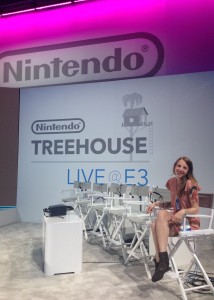
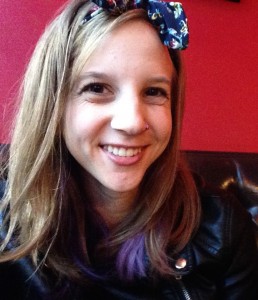
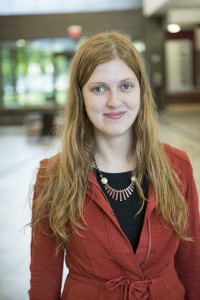
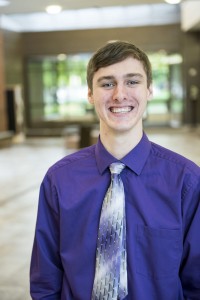
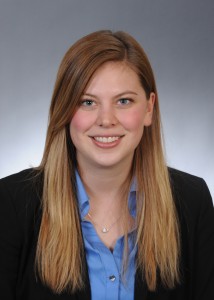
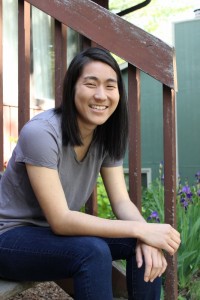 ent graduate and mathematics major, Taylor Kuramoto, has been selected to serve as a Fulbright English Teaching Assistant in South Korea for the ’15-’16 academic year! Fulbright receives thousands of applications each year, and Taylor was selected by both U.S. and South Korean committees. Taylor will be working with elementary or secondary students and will have the opportunity to live with a South Korean family in a home-stay. In her time outside of the classroom, Taylor plans to create English talking circles like those she participated in at the local Jane Addams School for Democracy as a Bonner Leader and hopes to use her experience as an Auggie soccer player to connect with students and peers through the sport.
ent graduate and mathematics major, Taylor Kuramoto, has been selected to serve as a Fulbright English Teaching Assistant in South Korea for the ’15-’16 academic year! Fulbright receives thousands of applications each year, and Taylor was selected by both U.S. and South Korean committees. Taylor will be working with elementary or secondary students and will have the opportunity to live with a South Korean family in a home-stay. In her time outside of the classroom, Taylor plans to create English talking circles like those she participated in at the local Jane Addams School for Democracy as a Bonner Leader and hopes to use her experience as an Auggie soccer player to connect with students and peers through the sport.